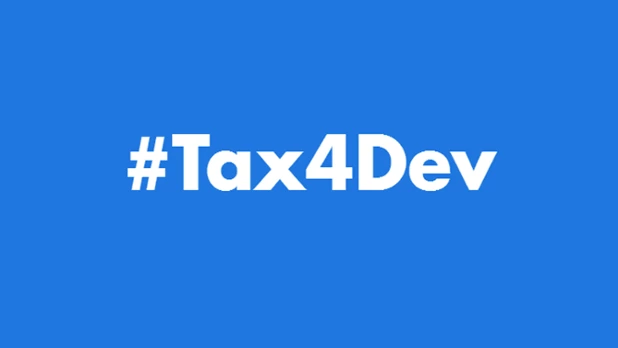
Taxation plays a fundamental role in effectively raising and allocating domestic resources for governments to deliver essential public services and achieve broader development goals.
Recently, discussions about tax avoidance and tax havens have dominated the headlines. While these discussions reflect real challenges for fair taxation, they should not overshadow the important broader work that must be done to help countries improve their overall tax policies and to implement these policies effectively through strong and capable tax administration.
Consider the following: We know that almost 30 of the 75 poorest countries collect less than 15% of GDP in taxes. Reaching and maintaining the 15% threshold is critical for any country that aims to provide basic services to its citizens.
That is why the Addis Action Agenda of 2015 called on countries to step up their efforts for a more effective domestic resource mobilization, recognising that much of the increased public financing to achieve the Sustainable Development Goals (SDGs) needs to be generated domestically.
We also know that fair and efficient tax systems do not just simply generate resources. Combined with good service delivery and public accountability, they help to build citizens’ trust in government and help societies prosper. Tax structures affect society and the economy in many other ways, including through their impact on investment and growth; empowerment of women; sustainability of the environment (for example, the carbon tax); extraction of natural resources; and other themes central to the achievement of the SDGs.
Collecting domestic revenues is essential, if governments are to provide critical services such as water, energy, education, and other basic infrastructure.
The World Bank Group, along with other partners, is working to strengthen the capacity of developing countries to formulate and implement good tax policy and build efficient tax administration systems.
This is not a matter of simply taxing more or lowering taxes for corporations, but of taxing better by simplifying and improving the efficiency of tax administration, bringing tax laws up to date, and making sure tax administrators know how to audit local and multinational companies.
All countries, of course, have a role to play. While developing countries need to mobilise more domestic resources, more advanced economies need to pay greater attention to the spillovers from their tax policies.
Tax policies in developed countries, for example, can lead to the loss of revenues in developing countries as they can affect where income and transactions are taxed, or the location of economic activity. During the third Financing for Development Conference in Addis Ababa in 2015, advanced economies committed to pursuing policy cohesion under the 2015 Addis Tax Initiative, but they lag on implementation of this commitment. To date, only Ireland and the Netherlands have published analyses of the spillover effects of their policies.
It is in this context that the Platform for Collaboration on Tax, an initiative that brings together the International Monetary Fund (IMF), Organisation for Economic Co-operation and Development (OECD), United Nations and World Bank, is convening on 14-16 February 2018 a major conference at the UN Headquarters on the topic of “Taxation and the SDGs.” The four partners have worked for decades to improve the frameworks for, and ability of, their member countries to effectively mobilise tax revenues.
This inaugural global conference will bring together ministers and deputy ministers of finance, tax authorities, and senior representatives from civil society, private sector, academia, regional, and global organisations.
An era of unprecedented international cooperation on tax is now underway with the advent of Automatic Exchange of Information, the Base Erosion and Profit Shifting project, and the active engagement of the UN Tax Committee. These initiatives aim to increase tax transparency and fair taxation as well as enhance the participation of developing countries in international tax policy discussions and institutions to fully realise the benefits of global cooperation on tax.
In this rapidly changing tax environment, the Platform for Collaboration on Tax, with a secretariat hosted by the World Bank, has an unparalleled opportunity to create dynamic interactions between standard setting, capacity building, and technical assistance in the sphere of international tax. The Platform can also help deepen the dialogue with developing countries on relevant global tax issues so their voice and experience is represented in international fora.
Platform partners, for example, advocate for “Medium-Term Revenue Strategies” (MTRS). This is a novel approach to support countries in reforming their tax systems through a country-driven process to develop medium-term, holistic, and realistic plans for revenue policy, as well as accompanying legal and administrative reforms that are consistent with the countries’ development goals.
The MTRS aims to enhance the ability of countries’ tax systems to achieve robust growth along with broader social objectives. The MTRS approach can also help shape and improve the relationship between citizens and their governments through a broad stakeholder engagement.
The first global conference of the Platform for Collaboration on Tax will kick off an important conversation among relevant stakeholders who will establish a vision and take concrete actions to realize the critical role of taxation in achieving broader development goals.
However, these actions will only be delivered if all stakeholders – from both developed and developing countries – join efforts and resources to ensure that taxes work for the SDGs, and for the poorest in the world. We need to count on every stakeholder to contribute to this effort.
Editor's Note: This article first appeared on the website of Europe’s World, the policy journal of Friends of Europe.


Join the Conversation